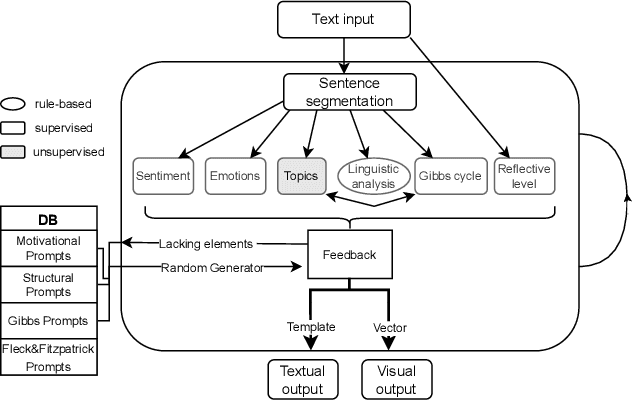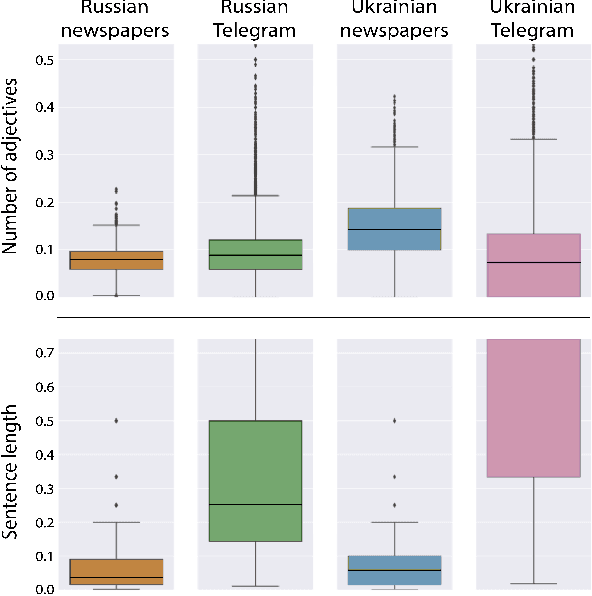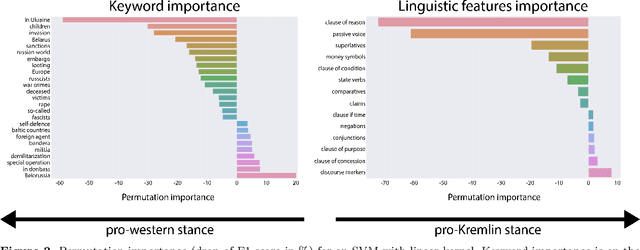Christoph Benzmüller
Freie Universität Berlin, Germany
Faithful Logic Embeddings in HOL -- A recipe to have it all: deep and shallow, automated and interactive, heavy and light, proofs and counterexamples, meta and object level
Feb 26, 2025



Abstract:Deep and shallow embeddings of non-classical logics in classical higher-order logic have been explored, implemented, and used in various automated reasoning tools in recent years. This paper presents a recipe for the simultaneous deployment of different forms of deep and shallow embeddings in classical higher-order logic, enabling not only flexible interactive and automated theorem proving and counterexample finding at meta and object level, but also automated faithfulness proofs between the logic embeddings. The approach, which is fruitful for logic education, research and application, is deliberately illustrated here using simple propositional modal logic. However, the work presented is conceptual in nature and not limited to such a simple logic context.
Logical Modalities within the European AI Act: An Analysis
Jan 31, 2025

Abstract:The paper presents a comprehensive analysis of the European AI Act in terms of its logical modalities, with the aim of preparing its formal representation, for example, within the logic-pluralistic Knowledge Engineering Framework and Methodology (LogiKEy). LogiKEy develops computational tools for normative reasoning based on formal methods, employing Higher-Order Logic (HOL) as a unifying meta-logic to integrate diverse logics through shallow semantic embeddings. This integration is facilitated by Isabelle/HOL, a proof assistant tool equipped with several automated theorem provers. The modalities within the AI Act and the logics suitable for their representation are discussed. For a selection of these logics, embeddings in HOL are created, which are then used to encode sample paragraphs. Initial experiments evaluate the suitability of these embeddings for automated reasoning, and highlight key challenges on the way to more robust reasoning capabilities.
Script-Based Dialog Policy Planning for LLM-Powered Conversational Agents: A Basic Architecture for an "AI Therapist"
Dec 13, 2024



Abstract:Large Language Model (LLM)-Powered Conversational Agents have the potential to provide users with scaled behavioral healthcare support, and potentially even deliver full-scale "AI therapy'" in the future. While such agents can already conduct fluent and proactive emotional support conversations, they inherently lack the ability to (a) consistently and reliably act by predefined rules to align their conversation with an overarching therapeutic concept and (b) make their decision paths inspectable for risk management and clinical evaluation -- both essential requirements for an "AI Therapist". In this work, we introduce a novel paradigm for dialog policy planning in conversational agents enabling them to (a) act according to an expert-written "script" that outlines the therapeutic approach and (b) explicitly transition through a finite set of states over the course of the conversation. The script acts as a deterministic component, constraining the LLM's behavior in desirable ways and establishing a basic architecture for an AI Therapist. We implement two variants of Script-Based Dialog Policy Planning using different prompting techniques and synthesize a total of 100 conversations with LLM-simulated patients. The results demonstrate the feasibility of this new technology and provide insights into the efficiency and effectiveness of different implementation variants.
Check News in One Click: NLP-Empowered Pro-Kremlin Propaganda Detection
Jan 28, 2024



Abstract:Many European citizens become targets of the Kremlin propaganda campaigns, aiming to minimise public support for Ukraine, foster a climate of mistrust and disunity, and shape elections (Meister, 2022). To address this challenge, we developed ''Check News in 1 Click'', the first NLP-empowered pro-Kremlin propaganda detection application available in 7 languages, which provides the lay user with feedback on their news, and explains manipulative linguistic features and keywords. We conducted a user study, analysed user entries and models' behaviour paired with questionnaire answers, and investigated the advantages and disadvantages of the proposed interpretative solution.
Normative Conditional Reasoning as a Fragment of HOL
Aug 22, 2023



Abstract:We report some results regarding the mechanization of normative (preference-based) conditional reasoning. Our focus is on Aqvist's system E for conditional obligation (and its extensions). Our mechanization is achieved via a shallow semantical embedding in Isabelle/HOL. We consider two possible uses of the framework. The first one is as a tool for meta-reasoning about the considered logic. We employ it for the automated verification of deontic correspondences (broadly conceived) and related matters, analogous to what has been previously achieved for the modal logic cube. The second use is as a tool for assessing ethical arguments. We provide a computer encoding of a well-known paradox in population ethics, Parfit's repugnant conclusion. Whether the presented encoding increases or decreases the attractiveness and persuasiveness of the repugnant conclusion is a question we would like to pass on to philosophy and ethics.
PapagAI:Automated Feedback for Reflective Essays
Jul 10, 2023



Abstract:Written reflective practice is a regular exercise pre-service teachers perform during their higher education. Usually, their lecturers are expected to provide individual feedback, which can be a challenging task to perform on a regular basis. In this paper, we present the first open-source automated feedback tool based on didactic theory and implemented as a hybrid AI system. We describe the components and discuss the advantages and disadvantages of our system compared to the state-of-art generative large language models. The main objective of our work is to enable better learning outcomes for students and to complement the teaching activities of lecturers.
Theorem Proving in Dependently-Typed Higher-Order Logic -- Extended Preprint
May 24, 2023Abstract:Higher-order logic HOL offers a very simple syntax and semantics for representing and reasoning about typed data structures. But its type system lacks advanced features where types may depend on terms. Dependent type theory offers such a rich type system, but has rather substantial conceptual differences to HOL, as well as comparatively poor proof automation support. We introduce a dependently-typed extension DHOL of HOL that retains the style and conceptual framework of HOL. Moreover, we build a translation from DHOL to HOL and implement it as a preprocessor to a HOL theorem prover, thereby obtaining a theorem prover for DHOL.
Automated multilingual detection of Pro-Kremlin propaganda in newspapers and Telegram posts
Jan 25, 2023



Abstract:The full-scale conflict between the Russian Federation and Ukraine generated an unprecedented amount of news articles and social media data reflecting opposing ideologies and narratives. These polarized campaigns have led to mutual accusations of misinformation and fake news, shaping an atmosphere of confusion and mistrust for readers worldwide. This study analyses how the media affected and mirrored public opinion during the first month of the war using news articles and Telegram news channels in Ukrainian, Russian, Romanian and English. We propose and compare two methods of multilingual automated pro-Kremlin propaganda identification, based on Transformers and linguistic features. We analyse the advantages and disadvantages of both methods, their adaptability to new genres and languages, and ethical considerations of their usage for content moderation. With this work, we aim to lay the foundation for further development of moderation tools tailored to the current conflict.
Solving QMLTP Problems by Translation to Higher-order Logic
Dec 19, 2022



Abstract:This paper describes an evaluation of Automated Theorem Proving (ATP) systems on problems taken from the QMLTP library of first-order modal logic problems. Principally, the problems are translated to higher-order logic in the TPTP languages using an embedding approach, and solved using higher-order logic ATP systems. Additionally, the results from native modal logic ATP systems are considered, and compared with those from the embedding approach. The conclusions are that (i) The embedding process is reliable and successful. (ii) The choice of backend ATP system can significantly impact the performance of the embedding approach. (iii) Native modal logic ATP systems outperform the embedding approach. (iv) The embedding approach can cope with a wider range modal logics than the native modal systems considered.
Who Finds the Short Proof? An Exploration of Variants of Boolos' Curious Inference using Higher-order Automated Theorem Provers
Aug 22, 2022Abstract:This paper reports on an exploration of variants of Boolos' curious inference, using higher-order automated theorem provers (ATPs). Surprisingly, only a single shorthand notation had to be provided by hand. All higher-order lemmas required for obtaining short proof are automatically discovered by the ATPs. Given the observations and suggestions in this paper, full proof automation of Boolos' example on the speedup of proof lengths, and related examples, now seems to be within reach for higher-order ATPs.
 Add to Chrome
Add to Chrome Add to Firefox
Add to Firefox Add to Edge
Add to Edge